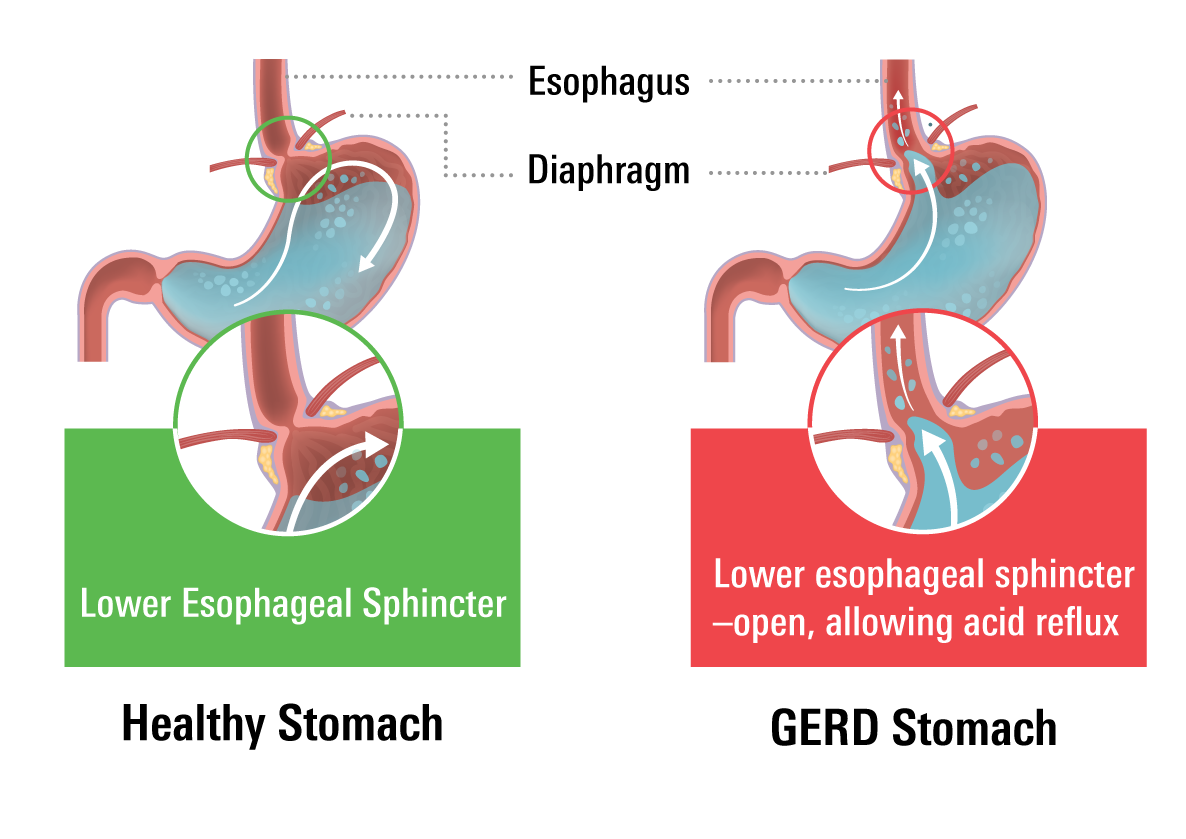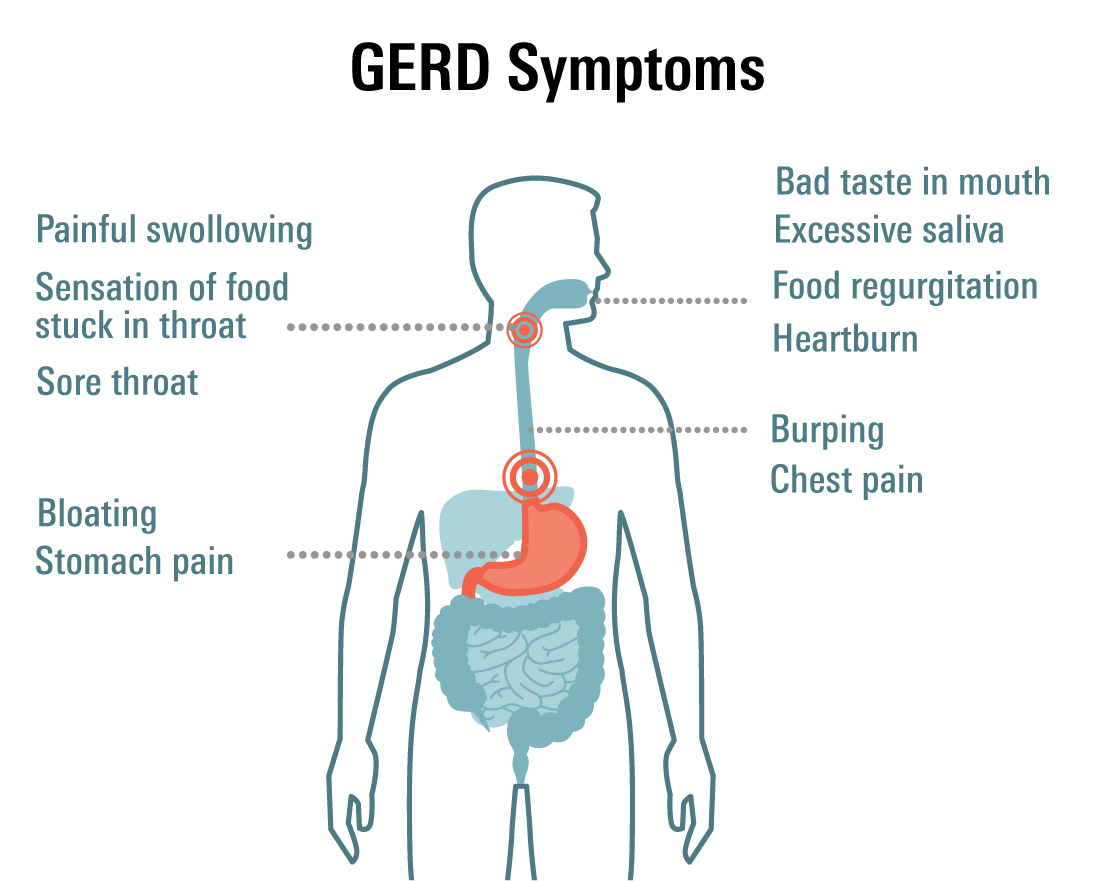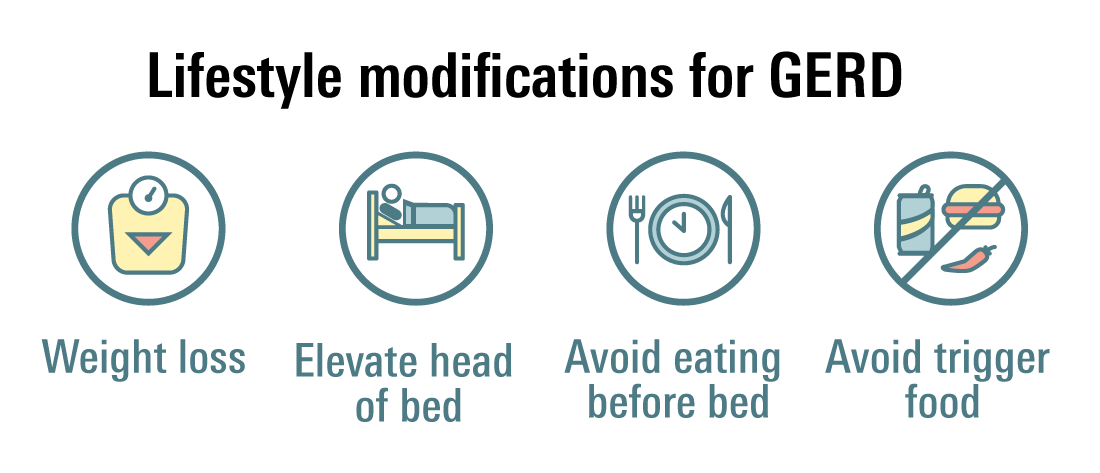Managing Acid Reflux: Omeprazole vs. Pantoprazole
Gastroesophageal reflux disease (GERD) affects roughly 20% of adults in the U.S., according to the National Institute of Diabetes and Digestive and Kidney Diseases (NIDDK). It can potentially lead to major problems if left untreated.
What is Acid Reflux?
Acid reflux, also referred to as gastroesophageal reflux (GER), occurs when the sphincter muscle at the bottom of your esophagus doesn't work properly, and stomach acid can back up into your esophagus. This can result in heartburn and other symptoms. Gastroesophageal reflux disease (GERD) is a chronic condition caused by frequent or reoccurring reflux (greater than 2 times per week).
The lower esophageal sphincter (LES), a protective ring of muscle fibers located at the entrance of your stomach, generally prevents acidic gastric contents from backflowing into the esophagus. With GERD, the LES pressure (muscle tone) is decreased, allowing stomach contents to flow back into the esophagus.

What Causes Acid Reflux?
As the food you just ingested reaches your stomach, your LES fails to seal properly, causing acid reflux. Acid backwash then travels up your esophagus, through your throat, and into your mouth, leaving you with a sour taste.
The most common cause of acid reflux is foods that are acidic or high in fat, such as onions, cheese, citrus fruits, tomatoes, coffee, peppermint, and chocolate.
What are Symptoms of GERD?
The typical GERD symptom includes:
- Heartburn (which may occur during the day or at night)
- Hypersalivation (excessive saliva)
- Regurgitation of acidic contents into your mouth or throat
Other symptoms include:
- Epigastric pain
- Nausea
- Odynophagia (painful swallowing)
- Dysphagia (the sensation of food being stuck in your throat)
- Burping
- Hiccups
- Hoarseness, dry cough, and/or chronic sore throat
- Chest pain

Which Medication Can Worsen My GERD Symptoms?
These medications/dietary supplements have the ability to irritate your esophagus and cause heartburn pain:
- Aspirin/NSAIDs, such as ibuprofen (brand: advil, motrin) and aspirin
- Bisphosphonates, such as alendronate (brand: fosamax) or ibandronate (brand: boniva)
- Antibiotics, such as tetracycline and clindamycin
- Steroids
- Nicotine replacement therapy
- Iron supplements
- Estrogen products
- Fish oil products
If you have GERD, check with your doctor to see if any of your medications are affecting your symptoms.
How is GERD Diagnosed?
Acid reflux disease can be diagnosed based on symptoms such as heartburn, especially if lifestyle adjustments, antacids, or acid-blocking drugs assist to alleviate these symptoms. Invasive testing is not required when typical symptoms are present.
- Upper gastrointestinal (GI) endoscopy and biopsy: If you have an alarming symptom (such as painful swallowing, hematemesis (vomiting of blood), black bloody stools, and/or unintended weight gain) or if there is a concern for a more serious condition, an endoscopy can be performed to further investigate the problem. An endoscopy may check for issues in your esophagus or stomach. A long, flexible, tube with a light and camera attached is inserted down your throat to look at the lining of your upper GI tract for this exam. A biopsy (small amount of tissue cut) is used to examine for GERD.
- pH monitoring: Examines the acid levels in your esophagus. To test the amount of acid in your esophagus, the doctor implants a device into your esophagus and leaves it in place for 1 to 2 days.
- Esophageal manometry: Examines the esophagus and lower esophageal sphincter for function and movement.
What are Treatment Options for GERD?
Many patients generally tend to self-treat GERD symptoms with over-the-counter (OTC) products and do not seek medical attention unless this fails. If you don't respond to lifestyle modifications, or if self-treatment with OTC products for 2 weeks doesn't work, or if alarm symptoms are present, you should be referred for further evaluation.
GERD treatment should include lifestyle modifications and medications.
Lifestyle modifications include:
- Weight loss (if overweight or recently gained weight)
- Elevate the head of the bed with foam wedges or blocks
- Avoid eating high-fat meals within 2-3 hours of bedtime
- Avoid food/drinks that trigger reflux, such as caffeine, chocolate, acidic/spicy foods, carbonated beverages like soda

Infrequent heartburn (greater than 2 times per week) can be treated with OTC medications that are used as needed, including:
Histamine–2 receptor antagonists (H2RAs) decrease gastric acid release by inhibiting the histamine–2 receptors in the gastric parietal cells. This drug class of medications is used as needed for infrequent or mild heartburn but tends to have a slower start time compared to antacids. A common side effect of H2RAs is headaches.
H2RAs include:
Famotidine (brand: Pepcid)
OTC: 10–40 mg up to once a day as needed typically before a meal or beverage that could cause heartburn
Rx: 10–40 mg 1–2 times daily
Buy Famotidine
Cimetidine 200 mg
OTC: 200 mg once daily
Rx: Rx: 200–800 mg 2–4 times daily
Antacids work by neutralizing gastric acid (producing salt and water), which then increases gastric pH (becomes more basic). This drug class of medications provides relief within minutes, however, the duration of relief is short (approximately 30-60 minutes). A common side effect of antacids is an unpleasant taste.
Calcium-containing antacids may be preferred in pregnant women.
OTC antacids include:
- Calcium carbonate (brand: Tums)
- Sodium bicarbonate (brand: Alka-Seltzer)
- Magnesium hydroxide (brand: Milk of magnesia)
- Pepto-bismol
The initial medication treatment of choice for GERD which is also found to heal any erosive esophagitis is a drug class called proton pump inhibitors (PPI). PPIs work directly in the stomach and attach to the gastric H+/K+ ATPase pump in the parietal cells, causing the proton pump to stop working, reducing gastric acid production.
This drug class of medications takes approximately 1–3 hours to start working and lasts around 24 hours.
Common side effects of PPIs include:
- Headache
- Nausea
- Diarrhea
- Stomach pain
- Vomiting
- Gas
Long-term use of PPIs may cause chronic changes in your gastric pH. This can cause the growth of microorganisms and increase your risk of developing GI infections, including Clostridium difficile (C.difficile) and possibly pneumonia, due to the reflux of gastric contents beyond the oral cavity. PPIs are not recommended for use for greater than 8 weeks in elderly patients.
PPIs contain an 8-week course of treatment used to relieve symptoms and heal erosions that may be present and should be stopped after 8 weeks. If your symptoms return after 8 weeks, then maintenance treatment is needed.
All PPI medications have similar efficacy; however, particular patients may respond better to one medication over another.
PPI medications include:
Omeprazole (brand: Prilosec) should be taken before breakfast.
OTC: 20 mg daily
Rx (prescription): 20–40 mg daily
Buy Omeprazole
Pantoprazole (brand: Protonix) can be taken with or without meals.
Rx: 40 mg daily
Buy Pantoprazole
Lansoprazole (brand: Prevacid) should be taken before breakfast.
OTC: 15 mg daily
Rx: 15–30 mg daily
Buy Lansoprazole
Dexlansoprazole (brand: Dexilant) can be taken with or without meals.
Rx: 30–60 mg daily
Esomeprazole (brand: Nexium) should be taken at least 60 minutes before breakfast.
OTC: 20 mg daily
Rx: 20–40 mg daily
Buy Esomeprazole
All PPIs are effective in most cases. In studies comparing pantoprazole to omeprazole, pantoprazole was found to be just as effective as omeprazole in treating GERD and stomach ulcers.
Watch our video on Omeprazole. Dee, one of our pharmacists, answers commonly asked questions about the medication.
Speak With Your Doctor
GERD can decrease your quality of life and lead to serious conditions such as esophageal erosion, strictures (damaged lining of the esophagus becomes scarred, causing narrowing of the esophagus), bleeding, and Barrett’s esophagus (abnormal cell growth in the esophageal lining which can lead to esophageal cancer).
If you have any symptoms of GERD, talk to your healthcare provider and send your prescription to Marley Drug. Save up to 95% compared to your local pharmacy by using Marley Drug.